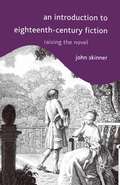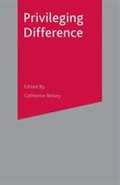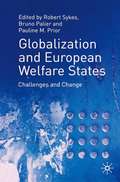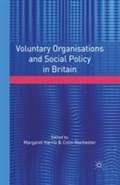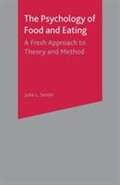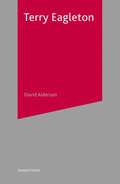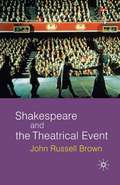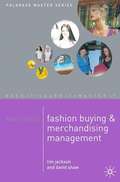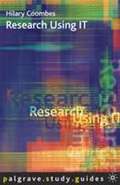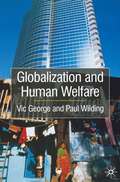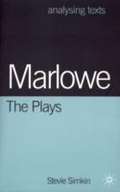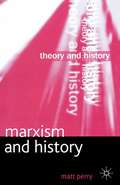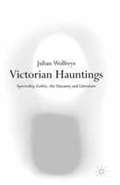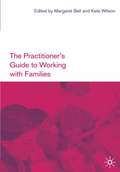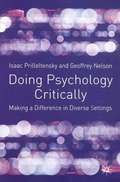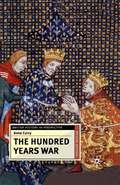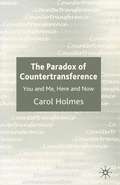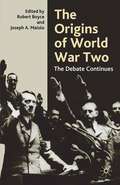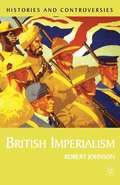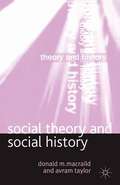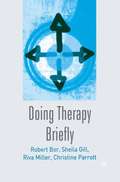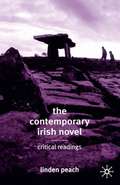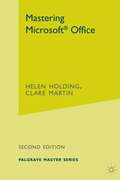- Table View
- List View
An Introduction to Eighteenth-Century Fiction: Raising the Novel
by John SkinnerThe formal and expressive range of canonic eighteenth-century fiction is enourmous: between them Defoe, Richardson, Fielding, Smollett and Sterne seem to have anticipated just about every question confronting the modern novelist; and Aphra Behn even raises a number of issues overlooked by her male successors. But one might also reverse the coin: much of what is present in these writers will today seem remote and bizarre. There is, in fact, only one novelist from the 'long' eighteenth century who is not an endangered species outside the protectorates of university English departments: Jane Austen. Plenty of people read her, moreover, without the need for secondary literature. These reservations were taken into account in the writing of this book. An Introduction to Eighteenth Century Fiction is a comprehensive and accessible introduction to English fiction from Aphra Behn to Jane Austen. It deals with novel criticism, canon formation and relations between genre and gender. The second part of the book contains an extensive discussion of Richardson and Fielding, followed by paired readings of major eighteenth-century novels, juxtaposing texts by Behn and Defoe, Sterne and Smollett, Lennox and Burney among others. The various sections of the book, and even the individual chapters, may be read independently or in any order. Works are discussed in a way intended to help students who have not read them, and even engage with some who never will. The author consumes eighteenth-century fiction avidly, but has tried to write a reader-friendly survey for those who may not.
Privileging Difference
by Chamsy El-OjeiliDifference, the key term in deconstruction, has broken free of its rigorous philosophical context in the work of Jacques Derrida, and turned into an excuse for doing theory the easy way. Celebrating variety for its own sake, Antony Easthope argues, cultural criticism too readily ignores the role of the text itself in addressing the desire of the reader. With characteristic directness, he takes to task the foremost theorists of the current generation one by one, including Edward Said and Homi Bhabha, Dona Haraway, Rosi Braidotti and Judith Butler. In a final tour de force, he contrasts what he calls the two Jakes, Jacques Lacan and Jacques Derrida, to bring out the way their respective theories need each other. The book is vintage Easthope: wide-ranging, fearless, witty and a radical challenge to complacency wherever it is to be found.
Globalization and European Welfare States: Challenges and Change
by Bruno Palier Robert Sykes Pauline M. Prior<p>This book seeks to counter the recent trend of speculation about the impact of globalization upon welfare states. It begins by asking two related questions: 'What exactly is globalization?' 'How, if at all, has globalization been implicated in recent changes to European welfare states?' <p>The book combines both theoretical and empirical analysis to provide a critical account of the relationship between globalization and change in European welfare states. <p>Firstly the key theoretical and conceptual debates are reviewed and the existing perspectives on globalization and welfare policy change are assessed. The text moves on to explore and challenge the more apocalyptic economic perspectives on globalization and welfare that suggest permanent retrenchment. The discussion includes an outline and assessment of the role of international organisations such as the World Bank and the EU. <p>All the major types of European national welfare system are considered: Bismarkian, Southern, Central and Eastern European, Nordic and Liberal. Individual chapters outline recent welfare policy changes in the European countries of each system, and the role of globalization in such changes. <p>This ground-breaking text provides new empirical and theoretical perspectives on links between globalization and European welfare state change. It will be important reading for students and academics in the fields of social policy, politics, international relations, European studies and related fields.</p>
Voluntary Organisations and Social Policy in Britain
by Margaret Harris Colin RochesterThe last two decades of the twentieth century saw the most fundamental changes in British social policy since the creation of the welfare state in the 1940s. From Margaret Thatcher's radical reassessment of the role of the state to Tony Blair's 'Third Way', the voluntary sector has been at the heart of these changes. At the beginning of the twenty-first century, voluntary organisations have been cast in leading roles on the social policy stage. They are expected to make key contributions to countering social exclusion; to regenerating communities; to providing social housing and welfare services; to promoting international aid and development; and to developing and sustaining democratic participation and the active community. But how are voluntary sector organisations grappling with the implications of their new, expanded role? How is their relationship with the state changing in practice? This book, which has its origins in an international conference of leading academics in the field, provides answers to these pressing questions. It analyses the numerous and complex ways in which the formulation and implementation of social policy is dependent on the contributions of the voluntary sector. It discusses the impact of the new policy environment on voluntary organisations. And it suggests that the successful implementation of social policy requires government to acknowledge and nurture the distinctive features and contributions of voluntary sector organisations. Voluntary Organisations and Social Policy in Britain is essential reading not only for the many people studying, working in or working with the voluntary sector in Britain but also for anyone who is interested in the formulation and implementation of social policy.
The Psychology of Food and Eating: A Fresh Approach to Theory and Method
by John L. SmithThere has long been an interest in food among psychologists across the full range of the discipline, from the physiology of hunger and the psychophysics of taste and smell to the development of food preferences and the social psychology of food-related behaviour and attitudes. In this new text, John L. Smith takes a much-needed broad view of the field, bringing together physiological research, psychodynamic theory, and sociological perspectives in a way that both celebrates their differences and explores their potential fusion. The Psychology of Food and Eating provides more than a 'dry' decontextualised physiological explanation of food and eating. It moves on to enable students to see food in its wider context in terms of everyday life and real routines. It provides an overview of social scientific approaches to the study of food (biosocial, socioanthropological, structural, feminist/psychodynamic) and an appreciation of the various ways that social psychological perspectives can be applied to real-life contexts. With its detailed (and almost confessional) account of the research process, students will gain an insider's perspective on how observational and idiographic techniques are deployed in practice in everyday settings. The book will prove of interest not only to students and researchers on health psychology, applied psychology and critical psychology courses, but also to all those looking for a really accessible introduction to contemporary alternatives to the more conventional research techniques used in this field.
Terry Eagleton
by David AldersonTerry Eagleton is the foremost Marxist cultural theorist of our time. In the first book-length study of this highly influential figure, David Alderson provides detailed discussions of Eagleton's Marxism and his engagements with postmodernism, as well as an evaluation of his interventions in Irish Studies. Each of the chapters in this important intervention in current theoretical debates offers accessible contextualization of the key issues and provides detailed analyses of Eagleton's literary criticism. Alderson shows that the complex relations between nature, culture and ideology, body, subjectivity and authority are at the heart of Eagleton's ethical and political concerns. He goes on to demonstrate that these relations inform the theorist's critical examinations of such literary works as Wuthering Heights and The Merchant of Venice, and his treatment of W. B. Yeats and Oscar Wilde.
Theatre of Good Intentions
by John Russell BrownIn his latest book, John Russell Brown offers a new and revealing way of reading and studying Shakespeare's plays, focusing on what a play does for an audience, as well as what its text says. By considering the entire theatrical experience and not only what happens on stage, Brown takes his readers back to the major texts with a fuller understanding of their language, and an enhanced view of a play's theatrical potential. Chapters on theatre-going, playscripts, acting, parts to perform, interplay, stage space, off-stage space, and the use of time all bring recent developments in Theatre studies together with Shakespeare Studies. Every aspect of theatre-making comes into view as a dozen major plays are presented in the context for which they were written, making this an adventurous and eminently practical book for all students of Shakespeare.
Mastering
by Tim Jackson David ShawThe first academic textbook covering European retail fashion buying and merchandising. It provides a unique insight into best practice across the fashion industry.
Aspects of Indian Writing in English
by D.R. Srinivasa IyengarThis is a collection of critical essays on various aspects of Indo-English literature by twenty-four Indian and Western scholars compiled by the author.
Research Using IT
by Hilary CoombesResearch Using IT offers a step-by-step explanation of how to research and how a computer can make the whole process a lot easier. The book assumes no previous experience of either research or computing, and uses no unnecessary jargon. It covers everything the student will need to know in order to carry out a successful research project - from choosing a topic, exploring the values and ethics in research, to guidance on the technical issues of conducting research. This book is an invaluable guide for anyone undertaking a research project.
Globalisation and Human Welfare
by Vic George Paul WildingThis thematically structured text offers an ideal introduction to the positive and negative effects of globalization on human welfare in industrial and developing societies. It documents the effects of globalization on economic growth, income distribution, poverty, education, health, social care and the environment. It pays special attention to the effects of globalization on ethnic and gender issues and concludes with an assessment of the possibilities of global social policy. It will appeal to undergraduates in the social sciences both as a basic text and a reference book.
Marlowe: The Plays
by Stevie SimkinChristopher Marlowe was the most successful dramatist of his time, his untimely death cutting short a career that may well have rivalled Shakespeare's. His four major works (Doctor Faustus, Edward II, The Jew of Malta and Tamburlaine) are remarkable pieces of theatre, daring explorations of themes such as the nature of kingship, salvation and damnation, sexuality and ethnic prejudice. This book looks in depth at extracts from each of the plays, exploring them in parallel to uncover key concerns, including heroes and anti-heroes, gender and power and politics. As well as guiding readers in an understanding of the place of these issues in their Elizabethan context, and inviting them to consider their resonance today, the book looks in depth at Marlowe's style: his use of rhythm, the complexities and richness of his poetry, and his evolving development of 'character'. Particular attention is given throughout to the plays in performance.
Marxism and History
by Matt PerryMarxism and History examines Marxism's enormous impact on the way historians approach their subject. Tackling current historiographical questions in a lively, jargon-free way, Matt Perry offers a concise introduction to: Marxist views of history; key Marxist historians and thinkers; and the relevance of Marxist theory and history to students' own work.
Victorian Hauntings: Spectrality, Gothic, the Uncanny and Literature
by Julian WolfreysVictorian Hauntings asks its reader to consider the following questions: What does it mean to read or write with ghosts, or to suggest that acts of reading or writing are haunted ? In what ways can authors in the nineteenth century be read so as to acknowledge the various phantom effects which return within their texts ? In what ways do the traces of such " ghost writing " surface in the works of Dickens,Tennyson,Eliot and Hardy ? How does the work of spectrality, revenance and the uncanny transform materially both the forms of the literary in the Victorian era and our reception of it today? Beginning with an expoloration of matters of haunting,the uncanny,the gothic and the spectral, Julian Wolfreys traces the ghostly resonances at work in Victorian writing and how such persistence addresses isues of memory and responsibility which haunt the work of reading. 'Taking the familiar genre of the Gothic as a point of departure and revisiting it through Derridean theory, Wolfreys' book, the first application of "hauntology" to the domain of Victorian Studies is a remarkable achievement. Wolfreys never reduces reading to instrumentality but remains alert to all the potentialities of the texts he reads with a great attention to their idiosyncrasies. Victorian Hauntings should bring a new tone to Victorian Studies, this clever book is quite perfect. - Jean Michel Rabate, Professor of English, University of Pennsylvania 'You'd have to be dead to know more about ghosts than Julian Wolfreys. ' Martin McQuillan, University of Leeds
The Practitioner’s Guide to Working with Families
by Margaret Bell Kate WilsonThis book offers a clear and coherent guide to working with families for practitioners and students in social work, health, counselling and related professions. It brings together recent thinking on the historical and contemporary constructions of the family in such a way as to provide a helpful framework for practitioners working in a variety of settings in the field. It offers up-to-date information on political, legislative and theoretical frameworks, and it reviews and illustrates a wide range of approaches and practice skills for working with families with different problems in different contexts.
Doing Psychology Critically: Making a Difference in Diverse Settings
by Isaac Prilleltensky Geoffrey NelsonHow can psychologists incorporate recent insights about power, values and inequality in their work? What is the role of social justice in the practice of psychology? In this highly readable book Prilleltensky and Nelson tackle these questions and propose workable solutions. This is the first book to translate into action the principles of critical psychology. Using a value-based framework the authors propose guidelines for training and critical practice in clinical, counselling, educational, health, community, and work settings. The authors base their approach on a combination of values for the promotion of personal, interpersonal, and collective well-being. They propose a set of values consisting of self determination, caring and compassion, health, respect for diversity, participation, community support and social justice. Because of its wide coverage, the book should be of interest to students and practitioners in psychology, mental health, and to users of psychological services in most fields of practice. Doing Psychology Critically: #65533; translates critical psychology theory into practice #65533; applies to most fields of applied psychology #65533; is written in an accessible style #65533; includes tables and diagrams that illustrate recommendations for practice #65533; follows a coherent framework #65533; is a useful resource for training programmes in health, clinical, counselling, educational, community, and organisational psychology ISAAC PRILLELTENSKY is Professor of Psychology and Director of the Wellness Promotion Unit at Victoria University in Melbourne. He is the author of The Morals and Politics of Psychology and co-editor of Critical Psychology: An Introduction (with Dennis Fox) and Promoting Family Wellness and Preventing Child Maltreatment (with Geoffrey Nelson and Leslea Peirson). GEOFFREY NELSON is Professor of Psychology at Wilfrid Laurier University in Canada. He has served as Editor of the Canadian Journal of Community Mental Health and is the author of Shifting the Paradigm in Community Mental Health (with John Lord and Joanna Ochocka) and co-editor of Promoting Family Wellness: Fundamentals for Thinking and Action (with Isaac Prilleltensky and Leslea Peirson).
The Hundred Years War
by Anne CurryAlthough the term 'Hundred Years War' was not coined until the 1860s, the Anglo-French conflicts of the later Middle Ages have long been of interest to historians. A fundamental question remains - was this a feudal war fought over ancient English rights in Gascony, or was it a dynastic war in which English kings battled for the crown of France itself? This book, now fully revised and updated to take account of the latest scholarship, examines the origins and phases of the war and explores the trends in historical opinion from the fourteenth century to the present day. Anne Curry provides a straightforward narrative of English involvement in France, placing the well known military events in their diplomatic context. By focusing on the treaties of 1259, 1360 and 1420, Curry argues that there was not one 'hundred year war' but rather three separate yet linked conflicts, all with significant implications for the European scene as a whole, and for Anglo-French relations in the centuries to come.
The Paradox of Countertransference
by Carol A. V. HolmesIn this innovative text, Carol Holmes provides students and professional psychotherapists with an historical account leading to the most up-to-date information on the core psychoanalytic concept of countertransference and the subsequent changes that have occurred in its clinical application. This book uniquely examines the fundamental principles and practice that underpin some of the major schools of psychotherapy including psychoanalysis, existential, humanistic, integrative, systemic and communicative therapy. The author compares the philosophies that underline these diverse schools and explores their precepts in relation to the notion of countertransference. In contrast to traditional psychoanalytic texts, the countertransference theme of the book is examined in relation to the biased and contradictory aspect of the concept, and highlights some of the more radical and interpersonal ideas that endorse the relational and complementary qualities between therapist and client. The text offers concise and engaging introductions to the main schools of psychotherapy, and includes interviews and case study analyses from notable practitioners and trainers from these competing approaches. This book will be invaluable for those interested in understanding the importance of the hidden messages that are concealed in our communications.
Bama Karakku
by BamaBama's Karukku is a life-story which we hope will lay the foundation for our list of Dalit writing in translation. Part autobiography, part analysis, part manifesto, Bama's is a bold account of what life is like outside the mainstream of Indian thought and function.
The Origins of World War Two
by Joseph A. Maiolo Robert BoyceNo issue in modern history has been more intensively studied, or subject to wider interpretation, than the origins of the Second World War. A conflict involving three - arguably four - major aggressor Powers, operating simultaneously but largely separately on two continents, inevitably raises complex theories and debates. Each participating power has its own history, and each one must take account of various influences upon the behaviour of its soldiers and statesmen. His wide-ranging collection of original essays, each by an international expert in their field, covers all aspects of the subject and highlights the controversy that continues to characterise current thinking on the origins of the war. Going beyond the usual Eurocentric approach, Part I examines the roles of all seven of the Great Powers (including Japan and the USA), as well as the parts played by several of the lesser Powers, such as Czechoslovakia, Poland and China. Part II contains chapters which explore key themes that cannot be fully understood within the context of any single country. These themes include the role of ideology, propaganda, intelligence, armaments, economics, diplomacy, the neutral states, peace movements, and the social science approach to war. Written in clear, jargon-free prose, together these essays provide a comprehensive single-volume text for students and teachers, and are essential reading for all with an interest in the debates surrounding the causes of World War Two.
British Imperialism
by Robert JohnsonWhat was British imperialism and was it an important element of modern globalization? Were economic, political or military factors paramount in imperial expansion? Do post-colonial theories assist or mislead historians? How have histories of imperialism changed, and are current analyses satisfactory? Robert Johnson's invaluable guide offers a succint, easy-to-follow introduction to the key issues and historiography of British imperialism from its origins to the conversion to the Commonwealth. British Imperialism - provides concise introductions to key questions and debates - takes a question-based approach to analysis of the material - offers an assessment of the significance of economic, military and political factors in imperial expansion and decolonization - presents critical appraisals of the most recent controversies including neo-colonialism, cultural imperialism, post-colonial theory, and gender and imperialism - includes a useful guide to further reading Using vivid examples, Johnson clearly explains the nature of British imperialism and enables the reader to understand the causes, course and immediate consequences of the British-colonial encounter on a world-wide scale. His book is an essential starting point for all those new to the subject and a helpful introduction to more recent debates.
Social Theory and Social History
by Donald M. Macraild Avram TaylorThe expansion of social history that took place in the twentieth century has produced some of the most exciting works in the field of historical studies. As the range of the social historian's concerns has grown, so has the range of methodologies and theoretical approaches they employ. Historians have made greater use of the theoretical insights of social scientists, and boundaries between the disciplines have become blurred as a consequence. Social Theory and Social History: - covers the major developments within social history - offers an introduction to the most important social theorists - discusses the relationship between history and the social sciences - considers the use of theory in the writing of history - examines current debates within historiography In this concise introductory guide, Donald M. MacRaild and Avram Taylor explore the complex relationship between social theory and social history, arguing that an awareness of the relation between the two is the key to a deeper understanding of the process of historical change.
Doing Therapy Briefly
by Robert Bor Sheila Gill Riva Miller Christine ParrottWith lengthy waiting lists, reduced resources and demands for more clearly defined performance outcomes, more and more counsellors, psychotherapists and psychologists are finding themselves under pressure to provide short-term treatment for their patients. In this book the authors argue that to work briefly counsellors need not just use a diluted version of their usual longer-term therapeutic model. They suggest that to work briefly is to work differently and they present the basic principles underlying a new trans-theoretical model.
The Contemporary Irish Novel: Critical Readings
by Linden PeachThis essential guide offers innovative critical readings of key contemporary novels from Ireland and Northern Ireland. Linden Peach discusses texts that are representative of the richness of Irish writing during the 1980s and 1990s, and reads works by established authors alongside those by the new generation of writers. The novels examined include works by John Banville, Jennifer Johnston, Roddy Doyle, Emma Donoghue, Seamus Deane, William Trevor, Dermot Bolger, Joseph O'Connor, Patrick McCabe, Mary Morrissy, Glenn Patterson and Robert McLiam Wilson. The Contemporary Irish Novel addresses themes such as ghosts and haunting, mimicry, obedience and subversion, the relocation and reinscription of identity, the mother figure, parent-child relations, madness, masculinity, self-harm, sexuality, domestic violence, fetishism and postmodernity. Drawing on a range of critical approaches including postcolonial, gender and psychoanalytic theory, Peach explores and celebrates the diversity of Irish fiction and suggests that the boundary between literature and theory is as permeable as that between Ireland and Northern Ireland.
Mastering Microsoft® Office
by Helen HoldingThis new edition of Mastering Microsoft Office provides a concise, practical guide to the essential features of Microsoft Office. With updated coverage of Office 2000, this book offers guidance on the most useful aspects of Word, Excel, PowerPoint and Access. It also includes a new chapter on Outlook. Step-by-step instructions take the reader through a series of connected tasks which are illustrated with screenshots to aid understanding. Exercises, multiple choice questions and worksheets help to consolidate knowledge, making this book ideal for use on courses, and for self-study in the home or office.
